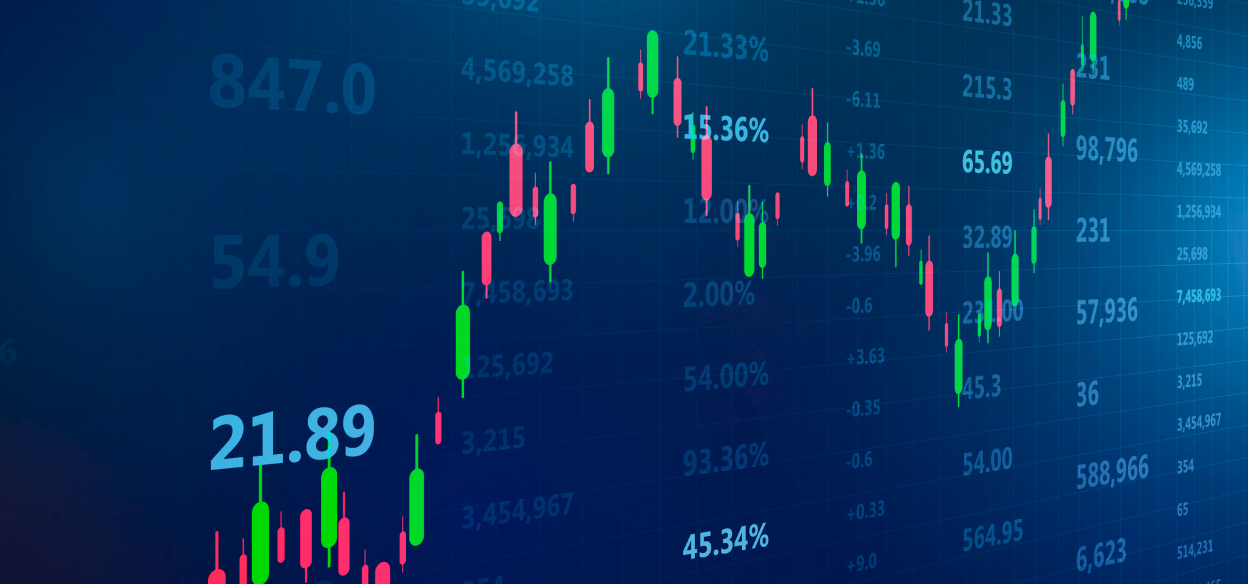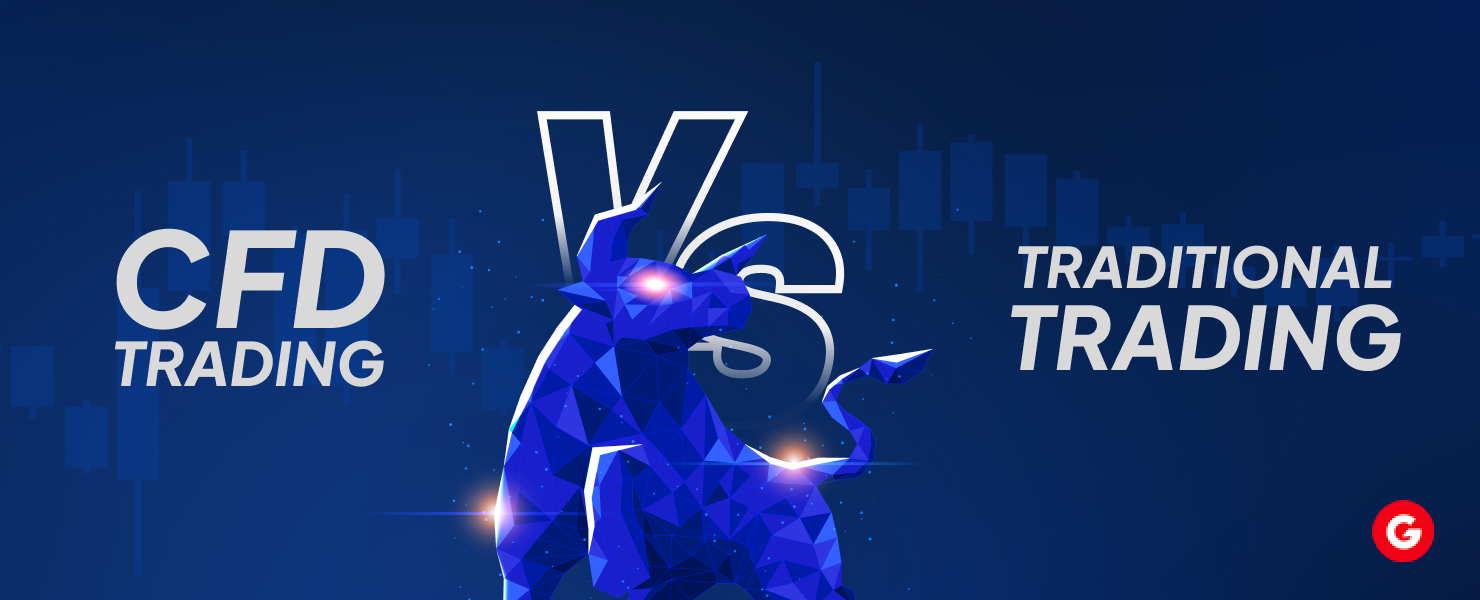Are you prepared to learn about the thrilling trading world and make wise decisions to grow your investment portfolio? We shall examine the differences between CFD trading and traditional trading in this article, outlining the advantages and disadvantages of each strategy. Whether you’re a novice trader or a seasoned pro, we’ll amuse you and point out possible hazards that might make your trading career.
CFD trading offers flexibility, leverage, and access to various markets, whereas conventional trading provides ownership and long-term investment potential. Traditional trading has more significant capital requirements, less short selling, and more substantial trading expenses. CFDs offer lower capital requirements even if they have more risk and allow for short sales.
Are you curious to know about CFD trading and traditional trading? Follow along as we detail each technique’s advantages, disadvantages, and essential elements. We’ll provide you with relevant information, qualified counsel, and guidance to help you make decisions that might affect your trading success. Utilize the comprehensive knowledge in the paragraphs.
Introduction
Trading has gained popularity as a way to make money in the fast-paced world of financial markets. People have many options and may choose between traditional and CFD trading. In the following paragraphs, we will evaluate the benefits and drawbacks of CFD training and traditional trading to help you decide which approach is best for your financial goals.
CFD Trading: An Overview
CFD Trading: What Is It?
With the help of CFD trading, investors may bet on the price changes of different financial instruments without holding the underlying assets. Traders sign a contract with a broker to swap the difference in the asset’s value from when the contract is opened until it is closed rather than purchasing or selling the actual investment. Trading may now benefit from both rising and declining markets thanks to this.
Pros of CFD Trading
- Leverage: The ability to trade on margin, which enables traders to handle more significant positions with a lower initial commitment, is one of the main benefits of CFD trading. Although this leverage increases possible gains, it’s vital to remember that it may also increase prospective losses.
- Diverse Asset Portfolio: Trading CFDs gives you access to various markets, including equities, indices, commodities, cryptocurrencies, and more. As a result, traders may diversify their portfolios and benefit from multiple market conditions.
- Short Selling: Unlike traditional trading, CFD trading allows investors to speculate on an asset’s price drop by taking short positions. Trading may benefit from both rising and declining markets because of this flexibility.
- Hedging Possibilities: CFDs can be used as a hedging instrument to counteract prospective portfolio losses. In linked markets, traders can lower their risk exposure by holding opposite bets.
- Access to Global Markets: Trading CFDs gives users access to the world’s financial markets, enabling them to trade overseas assets without filling out a ton of paperwork or creating foreign brokerage accounts.

Cons of CFD Trading
- High Risk: Compared to traditional trading, CFD trading has a higher risk because of leverage. To minimize possible losses, traders must thoroughly grasp the market and effective risk-management techniques.
- Counterparty Risk: CFD trading requires traders to contract with a broker, so they are subject to counterparty risk. Selecting a trustworthy and licensed broker is crucial to reduce the danger of financial loss.
- Overnight Financing: Holding CFD positions overnight may incur extra expenses, such as overnight fees or financing charges. When forecasting future gains or losses, traders should carefully take into account these expenses.
Exploring Traditional Trading
What is Traditional Trading?
Traditional trading is buying and selling tangible assets like stocks, bonds, commodities, or currencies through well-established exchanges or marketplaces. It entails ownership of the underlying assets and typically calls for a sizable capital outlay.
Pros of Traditional Trading
- Asset ownership: With traditional trading, investors can take immediate possession of the items they buy. This may result from long-term advantages, such as stock dividends or bond interest.
- Lower Counterparty Risk: Traditional trading, mainly through established exchanges, has lower counterparty risk than CFD trading. Transparency and security are guaranteed when transactions are carried out on regulated platforms.
- No Overnight Financing: Unlike CFD trading, traditional trading does not involve overnight financing costs. Long-term holding of investments does not incur additional fees for investors.
- Long-Term Investment Opportunities: Long-term investing techniques are frequently linked to traditional trading. Investors wishing to steadily accumulate wealth through capital growth and dividend income may find it ideal.
Cons of Traditional Trading
- Higher Capital Requirements: Traditional trading often demands a more significant initial commitment than CFD trading. For individual investors with minimal cash, this may restrict their access to specific markets or asset classes.
- Limited Short-Selling Opportunities: Unlike CFD trading, traditional trading may limit short-selling or demand extra procedures and borrowing fees to profit from negative price swings.
- Limited Market Reach: Regional factors may constrain traditional trade, making it harder to reach global markets. This may limit an investor’s ability to diversify their holdings.
- Higher Trading Expenses: Higher trading expenses, like commissions, transaction fees, and custody fees, are frequently associated with traditional trading. Potential gains may be reduced by these expenses, particularly for frequent dealers.
Starting Trading with FXGiants
A trustworthy online trading company that offers a CFD trading platform is FXGiants. How to start trading with FXGiants is detailed below:
- Opening Account: To establish an account, click the “Open an Account” button on the FXGiants website (https://www.fxgiants.com/fxg/). Complete the verification procedure by entering the necessary financial and personal information data.
- Platform Options: MetaTrader 4 (MT4 trading platform) and MetaTrader 5 (MT5 trading platform) are two trading platforms that FXGiants provides customers with. Download the trading platform on your smartphone that best suits your needs.
- Funding Your Account: Deposit money into your FXGiants trading account using one of the accepted payment methods after your account has been validated. Verify that the minimal deposit demands and additional expenses are acceptable to you.
- Education and Research: Use the market analysis tools and educational materials FXGiants offers. Access real-time market data, seminars, and tutorials to improve your trading skills.
- Bắt đầu giao dịch: You may begin trading CFDs on various assets FXGiants offers once your account has been filled. Implement sound risk management techniques, and keep up with industry changes.

FAQs
Some frequently asked questions based on the pros and cons of CFD trading and traditional trading are as follows:
What is trading in CFDs?
Trading in contracts for difference is known as CFD trading. Without owning the underlying assets, investors use a derivative trading strategy to predict the price alterations of different financial instruments. Traders and brokers engage in a contract to swap the difference in the asset’s value from when the contract is opened until it is closed.
Traditional trading: what is it?
Traditional trading is buying and selling tangible assets like stocks, bonds, commodities, or currencies through well-established exchanges or marketplaces. It entails ownership of the underlying assets and typically calls for a sizable capital outlay.
What benefits can CFD trades offer?
Leverage, access to a variety of assets, short selling, hedging possibilities, and worldwide market access are all benefits of CFD trading.
What drawbacks are there to trading CFDs?
High risk, counterparty risk, and possibly overnight financing charges are drawbacks of CFD trading.
What benefits do conventional trade practices offer?
Owning assets, having a more negligible counterparty risk, not needing overnight funding, and having long-term investment prospects are benefits of conventional trading.
What drawbacks exist with conventional trading?
Traditional trading has drawbacks such as increased capital requirements, fewer chances for short sales, less market access, and higher trading commissions.
How can I get FXGiants to let me start trading?
Visit the FXGiants website, create an account, pick a trading platform, add funds, use the instructional materials, and start trading CFDs to start selling with them. Before beginning any trading activity, do your homework and comprehend the hazards.
How does the Forex market work?
Participants in the Forex market exchange currencies electronically in a decentralized market. Trades are carried out through an electronic communication network (ECN) comprising banks, brokers, and other financial organizations. It is accessible 24/7 in several time zones, all seven days of the week.
Conclusion
Both CFD trading and traditional trading have advantages and disadvantages. While conventional trading gives a chance to hold assets and make long-term investments, CFD trading allows greater flexibility, leverage, and access to a broader choice of markets. It’s essential to know your investment objectives, risk tolerance, and preferred trading style to choose the best strategy for you. If you decide to start trading CFDs, FXGiants provides a reliable platform on which to do so. To effectively manage the complexity of financial markets, keep in mind to do extensive study, use prudence, and continually educate yourself.
DISCLAIMER: This information is not considered investment advice or an investment recommendation, but is instead a marketing communication
